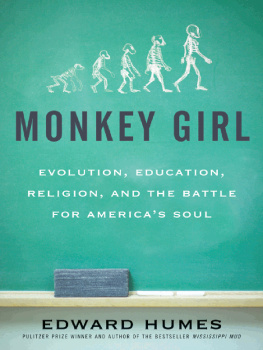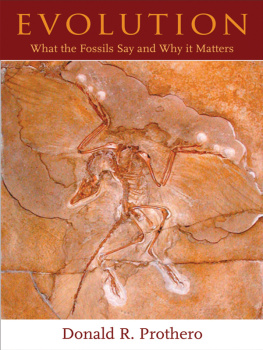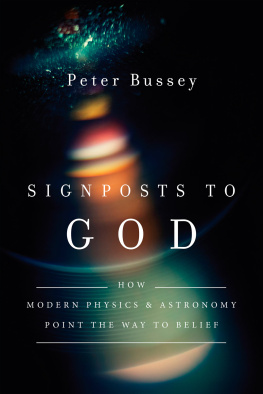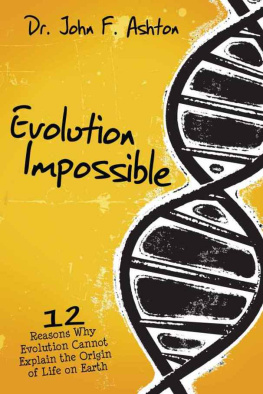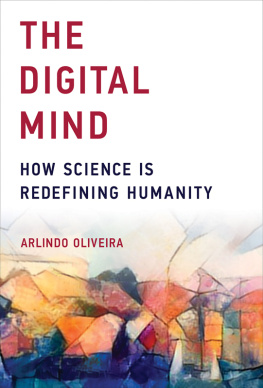Larson Edward John - On Faith and Science
Here you can read online Larson Edward John - On Faith and Science full text of the book (entire story) in english for free. Download pdf and epub, get meaning, cover and reviews about this ebook. City: New Haven, year: 2017, publisher: Yale University Press, genre: Religion. Description of the work, (preface) as well as reviews are available. Best literature library LitArk.com created for fans of good reading and offers a wide selection of genres:
Romance novel
Science fiction
Adventure
Detective
Science
History
Home and family
Prose
Art
Politics
Computer
Non-fiction
Religion
Business
Children
Humor
Choose a favorite category and find really read worthwhile books. Enjoy immersion in the world of imagination, feel the emotions of the characters or learn something new for yourself, make an fascinating discovery.

- Book:On Faith and Science
- Author:
- Publisher:Yale University Press
- Genre:
- Year:2017
- City:New Haven
- Rating:5 / 5
- Favourites:Add to favourites
- Your mark:
- 100
- 1
- 2
- 3
- 4
- 5
On Faith and Science: summary, description and annotation
We offer to read an annotation, description, summary or preface (depends on what the author of the book "On Faith and Science" wrote himself). If you haven't found the necessary information about the book — write in the comments, we will try to find it.
On Faith and Science — read online for free the complete book (whole text) full work
Below is the text of the book, divided by pages. System saving the place of the last page read, allows you to conveniently read the book "On Faith and Science" online for free, without having to search again every time where you left off. Put a bookmark, and you can go to the page where you finished reading at any time.
Font size:
Interval:
Bookmark:
On Faith and Science

EDWARD J. LARSON
AND
MICHAEL RUSE

Published with assistance from the foundation established in memory of Calvin Chapin of the Class of 1788, Yale College.
Copyright 2017 by Yale University Press.
All rights reserved.
This book may not be reproduced, in whole or in part, including illustrations, in any form (beyond that copying permitted by Sections 107 and 108 of the U.S. Copyright Law and except by reviewers for the public press), without written permission from the publishers.
Yale University Press books may be purchased in quantity for educational, business, or promotional use. For information, please e-mail (U.K. office).
Set in Janson Roman type by Tseng Information Systems, Inc., Durham, North Carolina.
Printed in the United States of America.
ISBN 978-0-300-21617-2 (hardcover : alk. paper)
Library of Congress Control Number: 2017932272
A catalogue record for this book is available from the British Library.
This paper meets the requirements of ANSI/NISO Z39.48-1992 (Permanence of Paper).
10 9 8 7 6 5 4 3 2 1
EJL:
To my mentor in science and religion,
Ron Numbers
MR:
To my colleague in science and religion,
Bob Richards
On Faith and Science
IN his short story The Duniazt from 2015, Salman Rushdie, born into a Muslim family in British India but targeted for death for his writings by such prominent Islamic clerics as Irans Supreme Leader Ayatollah Khomeini, relates the story of the twelfth-century Muslim philosopher, physician, and jurist Ibn Rushd. Through the influence of his commentaries, Ibn Rushd (known in the West as Averros) helped to introduce Aristotelian philosophy to medieval Europe and thus set the path of Western thought on a course that, through many contingent twists and turns, ultimately generated modern science. In Rushdies account, Ibn Rushd never intended this result but facilitated it nevertheless, and it made him a heroic figure. As The Duniazt makes clear, Ibn Rushd suffered for his science at the hands of Islamic clerics some eight hundred years ago, much as Rushdie currently suffers at those hands for his writings, and in this sense the story introduces both the historical significance and ongoing relevance of our topic.
In the year 1195, Rushdies account begins, the great philosopher Ibn Rushd, once the qadi, or judge, of Seville and most recently the personal physician to the caliph Abu Yusuf Yaqub in his home town of Crdoba, was formally discredited and disgraced on account of his liberal ideas, which were unacceptable to the increasingly powerful Berber fanatics who were spreading like pestilence across Arab Spain. By this point in his life, Ibn Rushd had written works on philosophy, including various branches of natural philosophy (as the sciences were then known), and commentaries on many of the known works of Aristotle. Perhaps his most important work, The Incoherence of Incoherence, challenged the then century-old claims of Muslim theologian Ghazali of Tus, who in the work The Incoherence of Philosophy argued against Aristotelian notions of natural law. Philosophy believed in the inevitability of cause and effect, is how Rushdie summaries Ghazalis position, which was an insult to the power of God, who could easily intervene to make causes ineffectual and alter effects if He so chose. Ibn Rushds defense of divinely created natural law led to his banishment in an allegedly classic case of the interference of religion with science.
Rushdie, whose own family name was adopted by his father in tribute to Ibn Rushd, repeats the famous example of the combustibility of cotton that appears in the battling treatises of the two medieval Islamic scholars. Cotton catches fire when licked by a flame, Rushdie writes in explaining Ibn Rushds Aristotelian position: Its how things are. The law of nature.... Causes have their effects. Not so, he counters in relating Ghazalis religious view: The cotton caught fire because God made it do so, because in Gods universe the only law is what God wills. For challenging the sovereignty of God, Ibn Rushd is banished from the court when his patron, the caliph Yaqub, becomes vulnerable to religious extremists within his realm. He used words that many of his contemporaries found shocking, including reason, logic, and science, which were the three pillars of this thought, the ideas that had led to his books being burned, Rushdie explains in a clear allusion to the ongoing state of science in the modern Islamic world. Although Rushdie might not get every element of this historic encounter exactly right, he captures the basic narrative as it has come down to us today and still lives in the Islamic world.
In Rushdies fictional version of what follows, Ibn Rushds lover probes the consequences of both lines of reasoning. So anything can happen if God decides its O.K.... A mans feet might no longer touch the ground, for example. He could start walking on air. Ibn Rushd concedes this would be a miracle of the type people should expect in a world governed by Ghazalis theology: God changing the rules by which He chooses to play. But then she counters in a logical extension of Aristotelian reasoning, Suppose I suppose... that God does not exist. Suppose you make me suppose that reason, logic, and science possess a magic that makes God unnecessary. This was Ghazalis concern, but Ibn Rushd in both his writings and Rushdies account dismisses it. That really would be a stupid supposition, Rushdie has Ibn Rushd declare. Quite to the contrary, Ibn Rushd argues that the certainty of knowable cause-and-effect relationships in nature proves that a rational Creator does exist and that the benevolent results of those natural laws testify to Gods goodness. Ibn Rushd maintains that a religious worldview enables science and that the findings of science support religion. The two ways of knowing complement each other.
Although not mentioned in Rushdies short story, which is directed against Islamic restrictions on reason, concerns like those expressed by Ghazali also arose in Christian Europe when Ibn Rushds Aristotelian commentaries arrived there a century later. In 1277, for example, the Catholic bishop of Paris condemned various Aristotelian teachings rooted in natural law. In Western Christendom, church-imposed limits on certitude over cause and effect stimulated speculative thought and spurred the empiricism that some historians see as ultimately advancing science. Nonetheless, those underlying concerns remain, resurfacing even today in some religious objections to the theory of evolution. If God is seen as specially creating every kind of living thing, then people can scarcely question Gods existence or character. In contrast, if the vast array of living things, including humans, evolved in series of natural cause-and-effect steps all the way back to space dust, then it is easy to dismiss Gods relevance.
After his patron wins a great victory over the Christian king of Castile in 1197, Ibn Rushd is rehabilitated. The victory enables the caliph to overcome religious extremists within his realm, but in the long run, Rushdies story reminds us, the zealots gain sway in many parts of the Islamic world to the detriment of science. Ibn Rushds Aristotelian commentaries instead take root in the Christian West, leading to both the type of science fostered by belief in a rational Creator knowable through creation and the type of science that pushes God so far back in the cause and effect of nature as to make a Creator all but irrelevant. Perhaps, as a godly man, Ibn Rushd would not have been delighted by the place history gave him, Rushdie concludes, for it is a strange fate for a believer to become the inspiration of ideas that have no need of belief, and a stranger fate still for a mans philosophy to be victorious beyond the frontiers of his own world but vanquished within those borders, because in the world he knew it was the children of his dead adversary, Ghazali, who multiplied and inherited the kingdom.
Next pageFont size:
Interval:
Bookmark:
Similar books «On Faith and Science»
Look at similar books to On Faith and Science. We have selected literature similar in name and meaning in the hope of providing readers with more options to find new, interesting, not yet read works.
Discussion, reviews of the book On Faith and Science and just readers' own opinions. Leave your comments, write what you think about the work, its meaning or the main characters. Specify what exactly you liked and what you didn't like, and why you think so.

